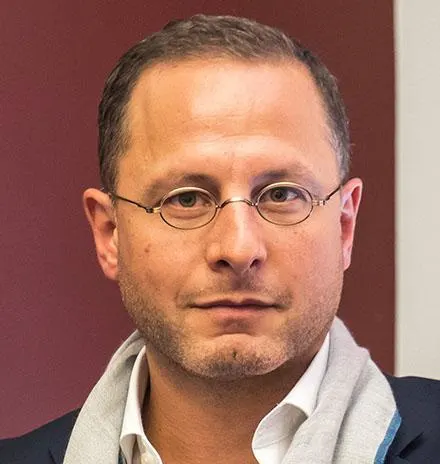In a virtual replay of events this past January, in 2006 Russia's energy giant Gazprom cut off its supply of natural gas to Ukraine's energy company in the depths of winter. The move confirmed the fears of many in the West that the wounded Russian bear, smarting from its diminished role in the post-Soviet era, could be a cruel and dangerous troublemaker. With about one-quarter of the world's reserves of natural gas, Russia was judged to be using its energy resources to beat up on a helpless neighbor and to flex its geopolitical—and potentially expansionist—muscles. Big bully vs. little innocent. Case closed? Nyet. "The Western notion that Russia uses energy as a weapon is a media oversimplification of very complicated politics," says HBS professor Rawi Abdelal. Abdelal, who recently produced a three-part case on Gazprom, says the 2006 Ukraine cutoff was in reality a business decision, albeit an extreme one. The context for that incident between the two countries went back years and involved at least one previous shutdown over unpaid Ukrainian bills, as well as disputed pipeline fees, unsigned contracts, bad faith, and, ultimately, failed negotiations. Although other neighboring countries had had similar problems with Ukraine, the shutoff was a PR disaster for Gazprom, which had enjoyed a long-standing reputation as a reliable supplier of natural gas, through pipelines in Ukraine, to Europe. Abdelal's case examines the history of Gazprom, the recent return of the state to ownership (with 50.002 percent), and Gazprom's strategy for becoming a global energy company, mainly through acquisition and partnerships.
Russia needs the money. It can't scare away its customers.
The learning objectives of the case focus on how political and economic influences and domestic and internecine dynamics affect the management of a state-controlled company. "Reinserting itself in the energy sector, the Russian state has installed a world-class, market-oriented management team to run Gazprom, the country's single most important company and biggest taxpayer," Abdelal explains. Russia, he adds, also views Gazprom revenues as a means to make its economy less dependent on the energy sector in the long term. Abdelal notes that because natural gas is much cleaner than oil or coal, Europe will likely become even more dependent on Russian gas. And, he says, another part of Gazprom's long-term strategy is "to build up its LNG capacity so it can export to regions it cannot reach by pipeline." Despite these moves, Abdelal downplays fears of Russian expansionism. "Energy can be a tool for influence," he says, "but it's not an effective tool for domination. That's because Russia needs the money. It can't scare away its customers. If Europe decides to stop buying Russian gas, Russia will be in big trouble."## Is The Price Right?With regard to Ukraine, Russia had been subsidizing it and a number of other post-Soviet states for a long time. To keep those states close to Russia and its sphere of influence, Gazprom had been billing them less for natural gas than its European customers. However, when Gazprom and the Russian government resolved to compete more openly in world markets, the company decided to charge all its customers the same price to maximize profits. Ukraine responded by telling Gazprom that it would refuse to pay the increase, and furthermore, it intended to charge Gazprom more to use Ukraine's pipelines to transit gas to Europe. Russia waited until the existing contract between the two countries expired and then shut off its supply to Ukraine. Ukraine answered by siphoning off gas bought and paid for by European countries. Russia's position, Abdelal says, was, "We just want Ukraine to pay the same price as everybody else, and also stop stealing gas." Abdelal, who has taught the Gazprom case in the AMP program, says participants were surprised at the facts behind the Ukraine confrontation and responded to the case's rich array of issues. His colleague, HBS professor Forest Reinhardt, reports that the case challenged MBA students in his Energy course to ponder the politics of energy security and the behavior of state-owned resource companies. And with its recent reenactment, the case could hardly be more timely.
